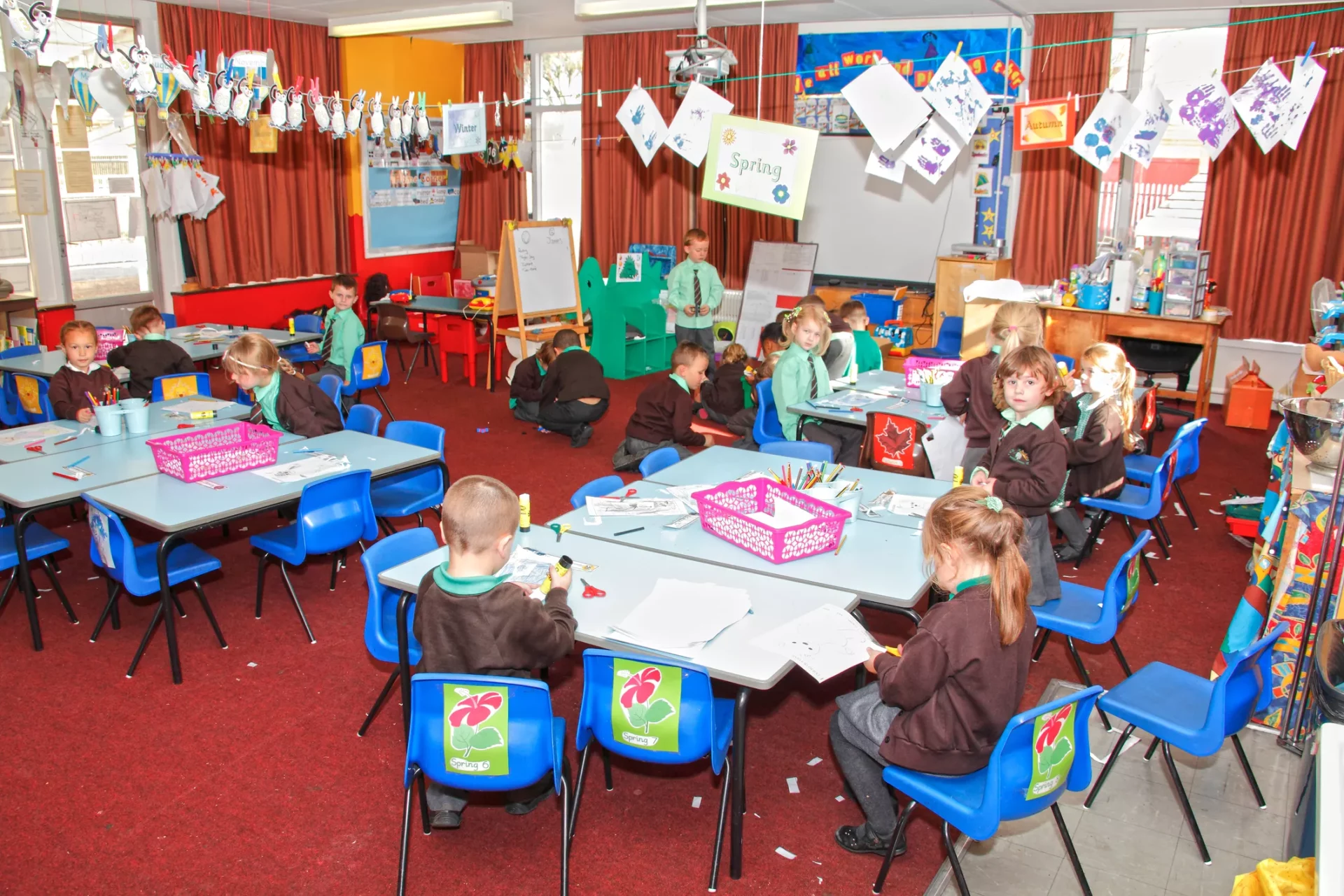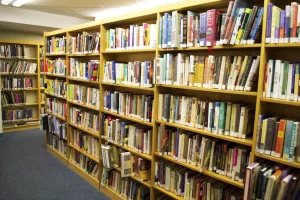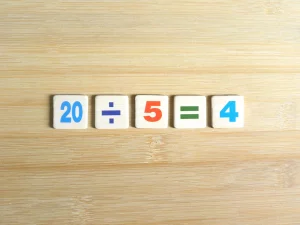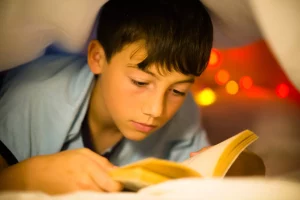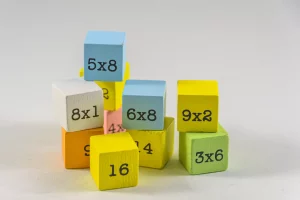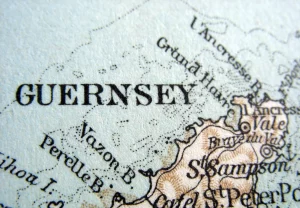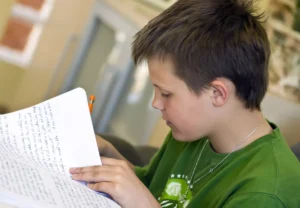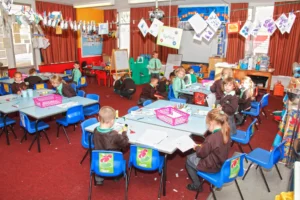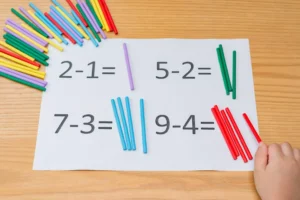English is perhaps the most important subject taught at schools in Guernsey: it contains learning in fundamental skills which underpin many other areas of the Guernsey curriculum. In Key Stage 2, students are expected to read fluently and with comprehension across a range of subjects. They need to be able to read and understand texts in subjects such as English, History, Science, and Geography, among others. Not only that, children with strong reading and comprehension skills are at an advantage in exam situations as they are able to understand the specifics of the questions asked and instructions given (an area which many teachers and English tutors in Guernsey often need to dedicate learning time to). Solid foundations in reading and writing open up a whole world of stories and factual materials alike, and help children to develop their imagination, creativity, and critical thinking skills.
The Guernsey English Curriculum was written by highly skilled educators and English tutors from across the Early Years, Primary and Secondary sectors, with support and advice from specialists from the Somerset Literacy Network and English tutors from the Guernsey Literacy Support Service. This progressive, skills based curriculum entitles all learners in Guernsey to a full range of English skills in Reading, Writing and Speaking & Listening.
In the majority of Guernsey Primary schools, children will have a minimum of one hour a day specific English lesson time, along with additional reading at individual, group and whole class level, precision grammar and spelling tutoring, and ample opportunities across all curriculum areas to develop their speaking and listening skills.
Prior Learning
It is miraculous that small children can learn to read and write! The processes and learning which goes into developing these skills are highly complex and require exceptionally skilled teachers and English tutors. In the Early Years Foundation Stage and Key Stage One your child will have learned the basis of reading and decoding through a phonics scheme. The majority of Guernsey schools use Little Wandle Phonics, which teaches children to decode, segment and blend words, read with prosody (showing understanding of meaning through expression) and comprehend on a literal and inferential level. As a writer, your child will have been taught to write in simple and compound sentences, and will be beginning to use a range of adjectives, nouns and verbs suitable to the piece they are writing.
English in the Lower Juniors
Once a child joins their school’s Junior department in Year 3, the level of independence increases greatly, and this is reflected in the level and amount of reading required in the average Guernsey classroom. Where children require extra support to develop their reading skills, many families have found that working with a specialist English tutor in Guernsey can make a significant impact in their child’s learning across the entire curriculum.
Reading Year 3 & 4
-
- Use a range of strategies to attempt to read and navigate new texts fluently and accurately to establish meaning.
- Read aloud with intonation and expression taking into account a range of punctuation.
- Be able to retrieve specific information from texts.
- Locate specific information making efficient use of page layout. (e.g. title, subheadings, labels, diagrams and charts in non-fiction and paragraphs in fiction).
- Locate specific information making efficient use of nonfiction text features (e.g. contents, index, glossary).
- Summarise and sequence events in a text.
- Infer meaning, motive and feelings from a range of texts and formulate a personal response; a skill which our English tutors in Guernsey often work on with our students.
- Deduce reasons for characters’ actions and events based on evidence from text and use this to predict future events.
- Recognise that texts have been written in different times and places and to begin to understand different viewpoints.
- Recognise and describe how writers select words and use a variety of language forms and structures to create effects.
Writing Year 3 & 4
-
- As a writer, children will be expected to write longer, more complex pieces of fiction and non-fiction. They will begin to organise their work into paragraphs and will be expected to sustain an idea over several sentences.
- Use an increasing range of punctuation and understand how it affects meaning, clarifies structure and conveys emphasis. Our English tutors in Guernsey have a range of great teaching activities which help children to use punctuation well.
- Select language that is appropriate for audience and purpose using an increasingly varied vocabulary. To begin to recognise different levels of formality.
- Make an informed phoneme – grapheme correspondence choice (choosing the right sound, and using known spelling rules e.g. ai spelling is usually found in the middle of words.
- Recognise and apply spelling rules and patterns using knowledge of word families and root words including morphemes. Often, our English tutors in Guernsey find that children with additional Literacy needs including dyslexia require more support with this.
- Recognise and use different lengths and structures of sentences, exploring how ideas are linked within and between sentences and paragraphs.
- Proofread and edit their own and others’ writing.
- Form and join letters fluently, legibly and correctly.
Speaking & Listening Year 3 & 4
- Organise and shape what they say for relevance and interest using appropriate vocabulary and some presentational techniques.
- Structure arguments and present opinions; individually and in a group context.
- Listen and respond to different views respectfully.
- Select language that is appropriate for the audience and purpose.
- Begin to recognise different levels of formality.
- Develop an awareness of varieties of language use including accent and dialect. To use standard English when appropriate.
English in the Upper Juniors
As your child joins Year 5, you will again see a significant step up in the level of English required by the Guernsey Curriculum. This is where stamina and concentration on reading and writing tasks is extended, and children are expected to work more independently than ever before. Teachers and English tutors in Guernsey often concentrate on understanding and composing complex sentences, using a variety of clauses across a wide range of genres, which allows children to both read and write with more fluency and clarity.
Reading Year 5 & 6
- Read independently and accurately, using a full range of strategies appropriately to establish meaning.
- Be able to retrieve specific information from texts.
- Locate relevant information quickly and effectively.
- Summarise events and identify themes in a text.
- Interpret, infer and deduce meaning from a range of texts* and formulate a personal response.
- Make predictions informed by implied and explicit meaning in texts.
- Recognise authors’ perspectives and viewpoints. To recognise the significance of social, historical and cultural influences on texts.
- Identify features of writers’ language choices with some explanation regarding effect.
Writing Year 5 & 6
- Use the full range of punctuation appropriately and show an understanding of how it clarifies meaning for the reader.
- Select language for effect using an increasingly varied range of vocabulary to suit a range of audience, purpose and formality.
- Apply spelling rules and patterns to unfamiliar words.
- Use a variety of sentence lengths and structures in order to shape writing according to audience and purpose. Ideas are linked between paragraphs. This is an area that our English tutors in Guernsey often help students to develop.
- Proofread and edit own and others’ writing independently.
- Gain fluency, legibility and stamina in handwriting.
Speaking & Listening Year 5 & 6
- Articulate ideas clearly and effectively using a range of appropriate techniques; in both planned and impromptu contexts.
- Present reasoned arguments and opinions individually and in a group context.
- Listen, respond and build upon the ideas and opinions of others sensitively and with respect.
- Select language for effect; using an increasingly varied range of vocabulary to suit a range of audience, purpose and formality.
- Appreciate differences in language use, including standard English, accent and dialect.
- Assured and fluent use of standard English when appropriate.
As you can see, there is a lot of dedicated teaching and tutoring of complex knowledge which goes into preparing a child to be ready to start their Secondary English education in Guernsey. In Key Stage 2, children are essentially building the foundation for many other academic and life skills. By developing strong English skills, students are better able to access learning, perform well in assessments and exams, and engage with the wider world.


